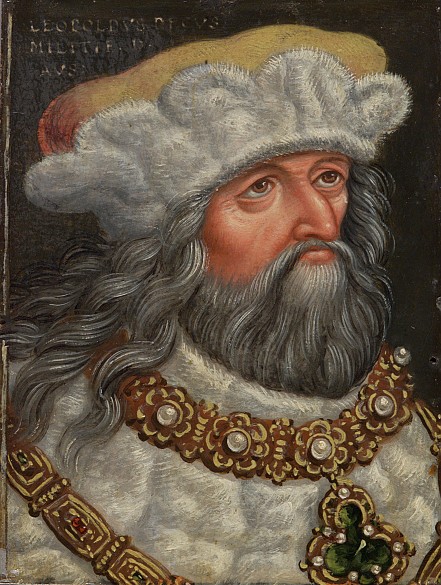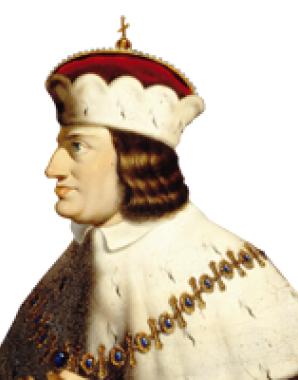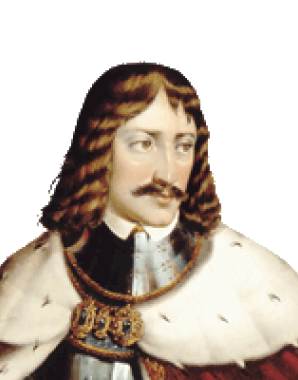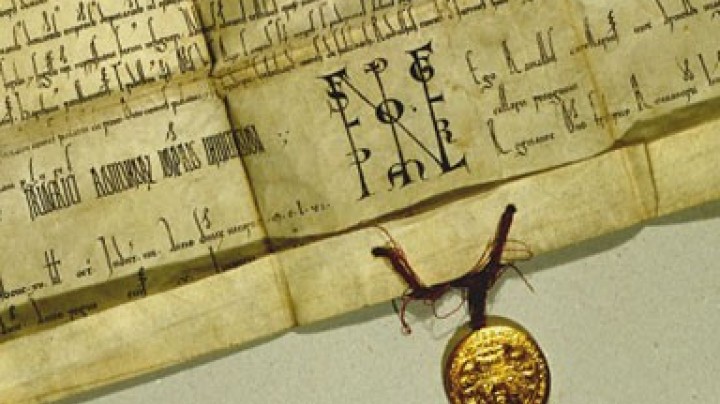Duke Leopold I, Sword of the Habsburgs
Described as being of small stature and extreme vigour, this Habsburg became the leading figure in the family.
Leopold was the third son of the many offspring of Duke Albrecht I and Elizabeth of Gorizia-Tyrol. The choice of the name Leopold speaks volumes, for this was the classic name given to first-born sons in the Babenberg dynasty. The fact that Albrecht, the first Austrian duke of the House of Habsburg, had resorted to this name for his son represented an attempt to establish a continuity with the traditions of the realm and points to the beginning of the dynasty’s attempts to establish itself in Austria.
Following the assassination of Leopold’s father Albrecht in 1308 his son relentlessly pursued the murderers, who had been headed by his cousin John.
Leopold supported the successor of his father as head of the Holy Roman Empire, King Henry VII from the House of Luxembourg, on his journey to Rome to be crowned emperor by the pope. This journey was marked by serious clashes between the Ghibellines, who were loyal to the emperor, and the Guelphs, who were loyal to the pope, culminating in the uprising in Milan, in the suppression of which Leopold distinguished himself as a military commander.
Henry VII promoted the ascent of the House of Luxembourg by enfeoffing his son John with the crown of Bohemia, making this dynasty a strong and sometimes superior rival to the Habsburgs for the next hundred years.
When Henry died suddenly in 1313 the Habsburgs attempted to regain the imperial crown. Leopold supported his eldest brother Frederick in this venture. A dual election was held, but the majority of the electors voted for Louis, Duke of Upper Bavaria and Prince Palatine of the Rhine, from the House of Wittelsbach.
By supporting the efforts to achieve independence by the Swiss Confederates, Louis succeeded in tying down Habsburg forces in their assertion of their claims to their ancestral lands. The crushing defeat of the Habsburg army at the Battle of Morgarten in 1315 dealt the brothers a heavy blow.
Louis’s hold on the emperorship was finally decided at the Battle of Mühldorf in Upper Bavaria on 28 September 1322. Deprived of the support of his brother Leopold, who had failed to arrive on the battlefield in time, the Habsburg anti-king Frederick succumbed to the superior forces of his adversary. The Habsburg defeat was aggravated by the capture of Frederick and his younger brother Henry.
Leopold endeavoured to find allies among Louis’s enemies, the papal Curia and France, in order to bolster his position in the negotiations to free his brothers. Here Leopold proved himself an uncompromising hardliner: after Frederick had already concluded a peaceful settlement with his adversary Louis, Leopold refused his consent, even at the cost of his brother having to return to Wittelsbach custody. Shortly before Frederick and Louis achieved a final reconciliation in 1325 Leopold died unexpectedly. The cause of his death is unknown, but heart disease is regarded as a probability.
Leopold was buried at Königsfelden Abbey in Switzerland. After its dissolution his remains were transferred to the abbey of St Blaise in Germany and finally, in 1809, to the abbey of St Paul in Carinthia.














